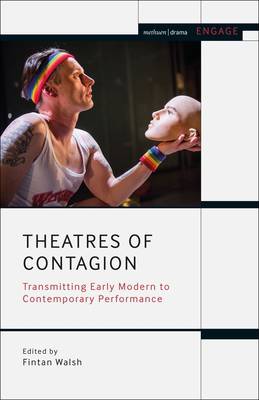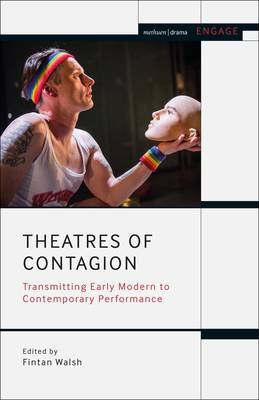
- Retrait gratuit dans votre magasin Club
- 7.000.000 titres dans notre catalogue
- Payer en toute sécurité
- Toujours un magasin près de chez vous
- Retrait gratuit dans votre magasin Club
- 7.000.0000 titres dans notre catalogue
- Payer en toute sécurité
- Toujours un magasin près de chez vous
Theatres of Contagion
Transmitting Early Modern to Contemporary Performance
Description
To what extent is theatre a contagious practice, capable of undoing and enlivening people and cultures? Theatres of Contagion responds to some of the anxieties of our current political and cultural climate by exploring theatre's status as a contagious cultural force, questioning its role in the spread or control of medical, psychological and emotional conditions and phenomena. Observing a diverse range of practices from the early modern to contemporary period, the volume considers how this contagion is understood to happen and operate, its real and imagined effects, and how these have been a source of pleasure and fear for theatre makers, audiences and authorities. Drawing on perspectives from medicine, neuroscience, psychology, anthropology, philosophy, law and affect theory, essays investigate some of the ways in which theatre can be viewed as a powerful agent of containment and transmission.
Among the works analysed include a musical adaptation and an intercultural variation of Shakespeare's Romeo and Juliet; a contemporary queer take on Hamlet; Grand- Guignol and theatres of horror; the writings and influence of Artaud; immersive theatre and the work of Punchdrunk, and computer gaming and smartphone appsSpécifications
Parties prenantes
- Editeur:
Contenu
- Nombre de pages :
- 232
- Langue:
- Anglais
- Collection :
Caractéristiques
- EAN:
- 9781350215511
- Date de parution :
- 25-03-21
- Format:
- Livre broché
- Format numérique:
- Trade paperback (VS)
- Dimensions :
- 140 mm x 216 mm
- Poids :
- 272 g

Les avis
Nous publions uniquement les avis qui respectent les conditions requises. Consultez nos conditions pour les avis.





